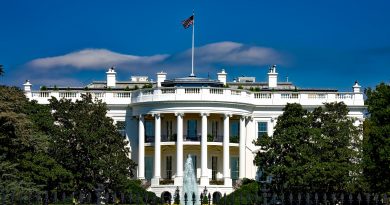Biden’s Refocusing Act
Cameron Bird
Staff Writer
Leading up to his State of the Union address on March 7th, President Biden faced immense pressure to respond to a vast array of issues and political pressures. On both the domestic and international front, serious questions have arisen and continue to persist regarding his capacity, and the capacity of the U.S. government, to respond to a multitude of crises around the world. It therefore came as no surprise that foreign policy, an area of politics oft-ignored in the leadup to presidential elections, became a focal point of his speech. President Biden entered the speech with intensified pressure, domestically and internationally, to present a strong case about his future policy goals, and the ability of the U.S. to maintain its global role as a leader during this crucial era of international crises. President Biden answered that call effectively and illustrated just how influential the U.S. can be on the world stage. President Biden made clear, that the U.S. finds itself at an inflection point in world history, and must place itself on the right side of history when dealing with these incredibly influential events.
President Biden is currently handling two, among many, foreign policy crises. Firstly, the U.S. Congress has stalled a package of Ukraine aid, and the impacts of this lack of aid are translating onto the battlefield. The recent loss of Avdiivka, a town that had become a flashpoint of the frontline in Eastern Ukraine, highlighted the Ukrainian defenses’ short supply of ammunition, according to the Associated Press. U.S. aid has totaled around $74 billion so far, according to the Council on Foreign Relations. While the U.S. has provided large amounts of aid to Ukraine, it is essential to recognize that not even a tenth of the Department of Defense’s budget, and less than 2% of the total U.S. budget, contributed to a massive slowdown of the Russian war machine, without the involvement of any U.S. personnel on the ground. The Center for Strategic and International Studies highlights that the gradual decrease or absence of aid will have catastrophic impacts on Ukraine’s ability to wage war. It will reduce their ability to counterattack and increase the number of Russian missiles that successfully eliminate targets, as Ukraine’s defensive munitions decrease further. President Biden therefore suggests that aid from the U.S. is not just strategically convenient, but necessary for the maintenance of a sovereign democratic state in Eastern Europe. Another critical issue President Biden had to address from a political standpoint was the crisis in Gaza. The Israel-Hamas war, and the U.S. thorough support of Israel’s response, have come under intense scrutiny the further the conflict has prolonged. However, in a move indicating a shift in policy by the Biden administration, BBC News reports that the U.S. plans to establish a floating pier that could provide direct aid to Gaza without going through Egypt or Israel, a move that shows an increased willingness from the Biden administration to prioritize civilian life and safety in light of Israel’s unequivocally intense response.
President Biden’s speech required addressing two key foreign policy goals and placing them within a larger historical context that justified U.S. action in each conflict. As NPR reported, the intense political backlash and headwind surrounding the American response to the Israel-Hamas conflict has caused massive concern for Biden from a campaign perspective. He effectively responded to that criticism, introducing an aid initiative, and ramping up his critical rhetoric of Israeli President Benjamin Netanyahu. From the perspective of progressives who are dissatisfied with the American role in the conflict, this aid initiative is unlikely to be enough. But for President Biden to indicate a shift in policy on a stage as large as the SOTU, suggests his increasing willingness to respond to the opinions of the American people, similar to how he responded in the early days of the war in Ukraine. The U.S. has a thorough history of policy decisions that differentiate from their moral and ideological posturing. However, the actions of the Biden administration concerning Ukraine, and their newfound direction of action in Gaza, suggest that President Biden may be matching his rhetoric with action, an encouraging change that the SOTU showed is more feasible than ever before. There is a fine line between apologizing on behalf of American wrongdoing in foreign affairs and suggesting U.S. policy is correct in such polarizing conflicts. As Al Jazeera reported following the SOTU, President Biden still has room for significant criticism of how ‘ironclad’ his support for Israel is. Yet the SOTU was the beginning of a shift, and while tangible policy change must follow, this shift cannot go unignored, or be treated as insignificant, especially when the current events of the world are as significant and monumental as Biden himself outlined.
Image courtesy of Getty Images

